Reading skills improvement Phonics Worksheets for Ages 3-5
7 filtered results
-
From - To
Boost your child's reading abilities with our engaging Phonics Worksheets designed for ages 3-5. These expertly crafted worksheets from Kids Academy focus on improving reading skills through fun activities that teach foundational phonics concepts. Each sheet is packed with colorful illustrations and interactive exercises, fostering a love for reading while developing phonemic awareness, letter recognition, and early word formation. Perfect for young learners, these worksheets make mastering reading enjoyable and effective. Start your child's literacy journey today with Kids Academy's Phonics Worksheets!
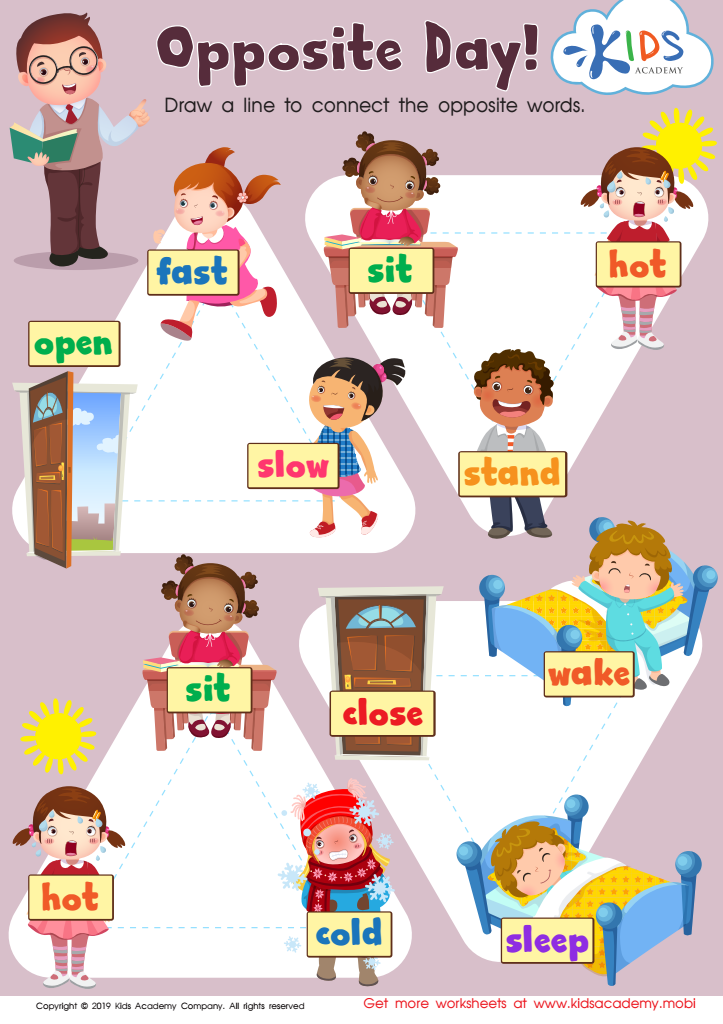

Opposite Day Worksheet
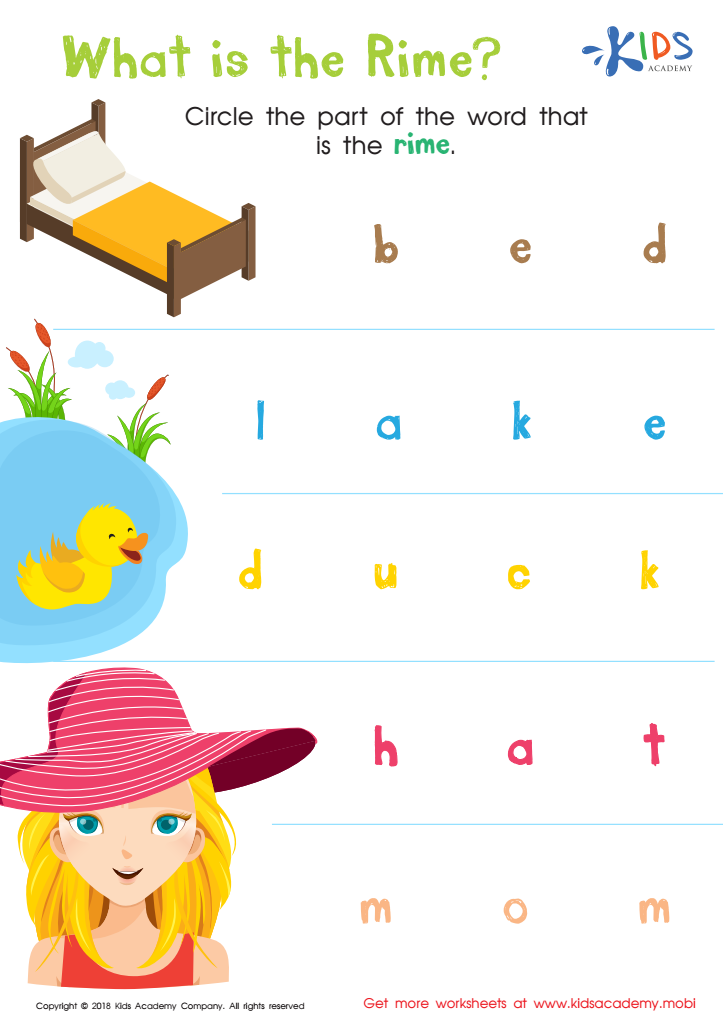

What Is the Rime? Worksheet
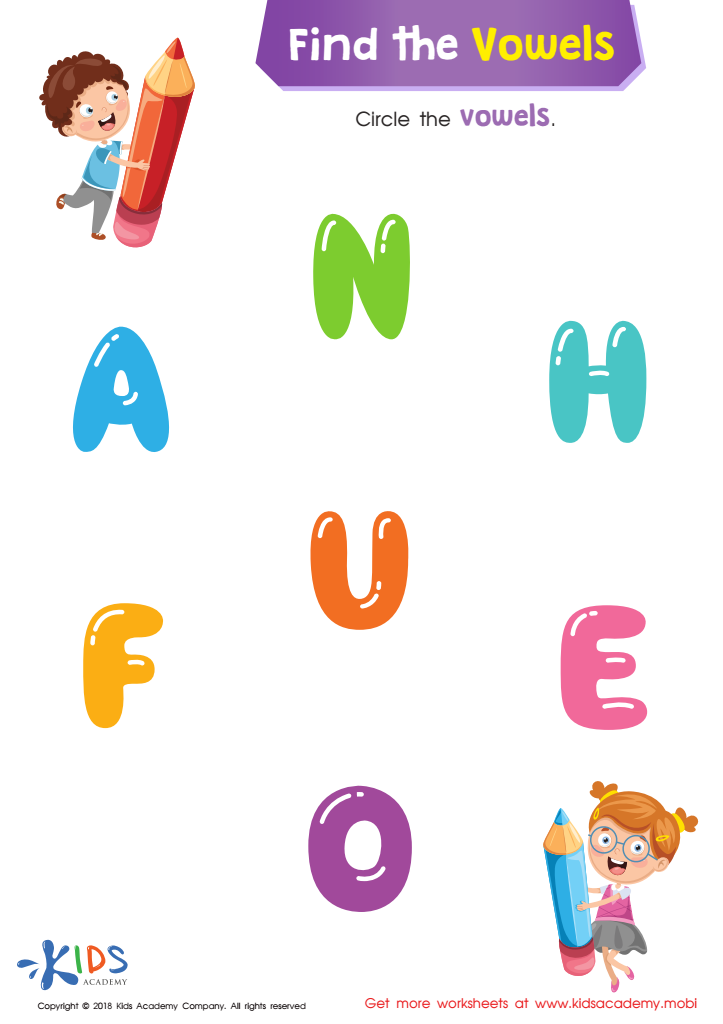

Find the Vowels Reading Worksheet
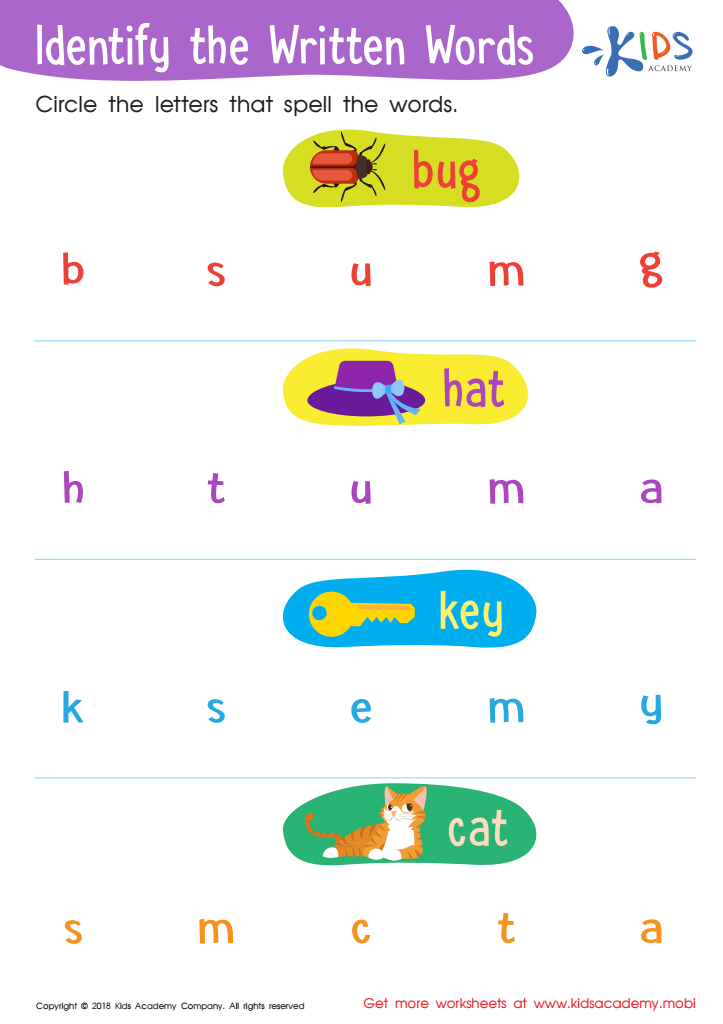

Identify the Written Words Worksheet


Words with sound p Reading Worksheet
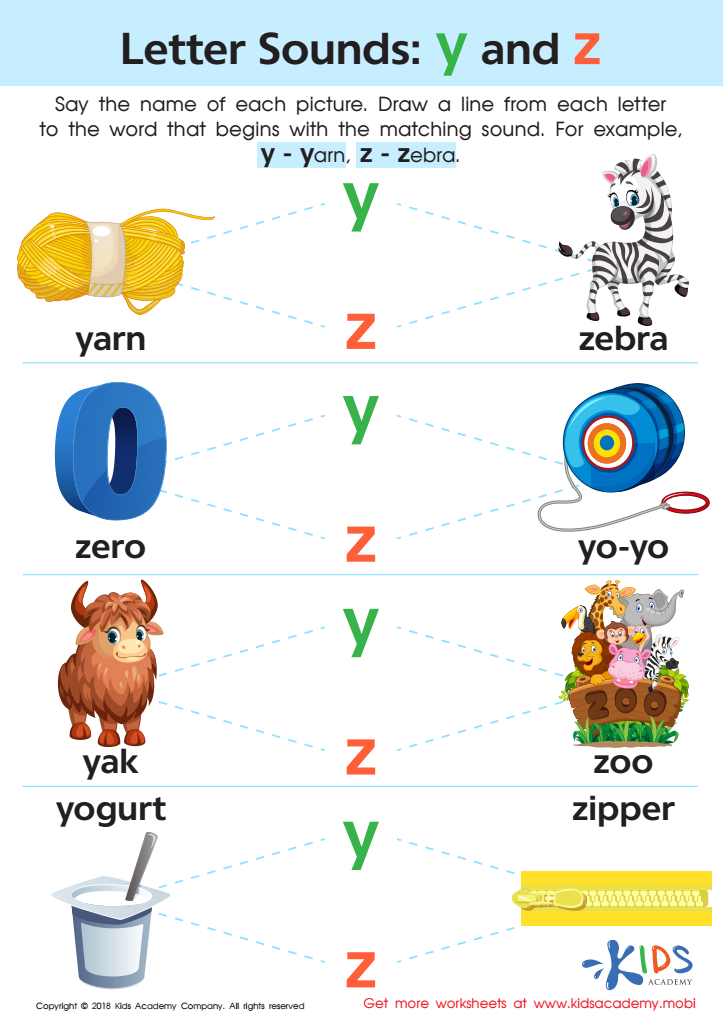

Letter Y and Z Sounds Worksheet
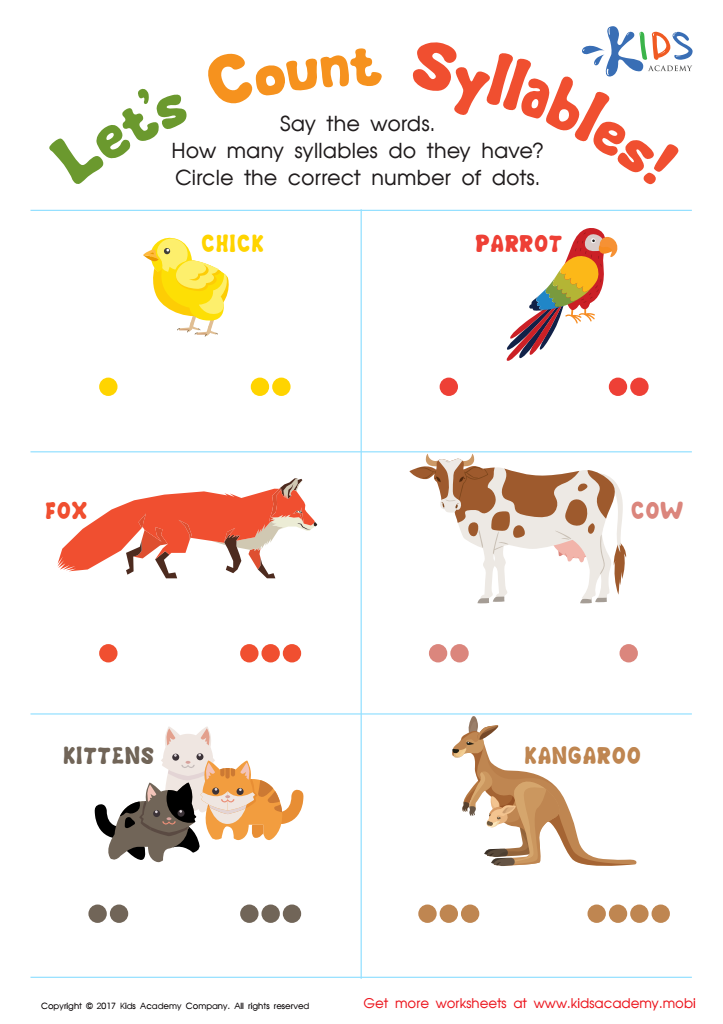

Lets Count Syllables Worksheet
Parents and teachers should prioritize improving reading skills, especially phonics, for children aged 3-5 for several compelling reasons. Phonics is the foundation of reading, teaching children the relationships between letters and sounds. Mastering this skill in early childhood sets the stage for independent reading, boosting confidence and fostering a love for learning.
Firstly, phonics improves literacy. Children learn to decode words, which enhances their reading accuracy and fluency. This skill is crucial as early literacy is closely linked to future academic success. Studies show that children who read proficiently by third grade are more likely to perform well in other subjects.
Secondly, good reading skills development stimulates cognitive growth. When children engage with texts, they improve their vocabulary, comprehension, and critical thinking skills. Phonics also stresses listening skills, focusing on sound patterns, and distinguishing different sounds, which further enriches communication skills.
Lastly, promoting early reading skills, especially through playful and interactive phonics activities, can create strong parent-child or teacher-child bonds. These interactions can make reading an enjoyable habit, not just an educational duty. This positive experience can inspire lifelong learning and curiosity, ultimately paving the way for continuous intellectual and emotional growth.
Investing in phonics and reading skills at the preschool level is not only an academic necessity but also a holistic developmental imperative.

 Assign to My Students
Assign to My Students















